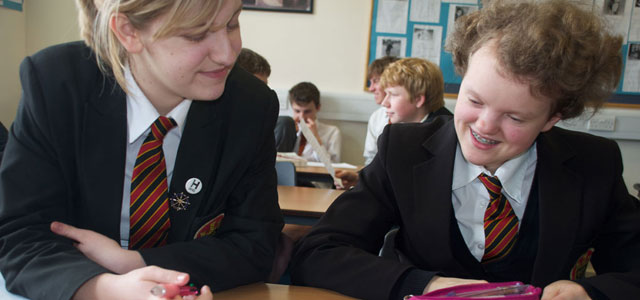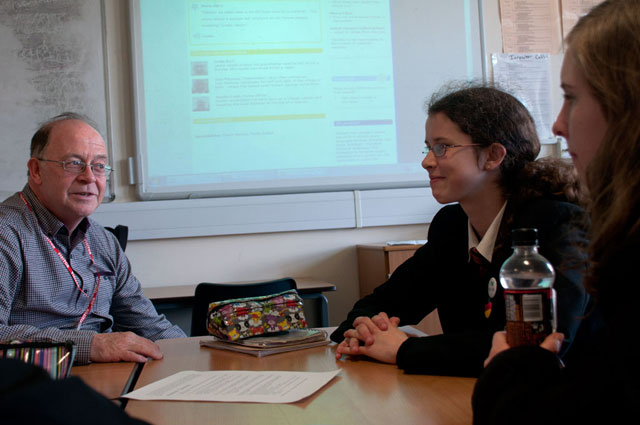
The FreeTime project invited Trevor Bevins from The View from Dorchester to talk to students of Thomas Hardye School. Where students from the English Department received his expert advice, gathered over years in the business working for organisations like the BBC.
Trevor covered key approaches in securing an interesting story from the project participants. Namely asking open-ended questions and taking a keen interest, a curiosity to what people are saying. This importantly involves ‘active listening’.
The ability to ask open-ended questions is very important in many vocations, not just journalism, and includes sales, counselling and education. Trevor told us how; “In journalism, stories are all about people and how they are affected by events. Audiences want to experience the emotion and asking open-ended questions is a basic way to gather information. But like everything else, there’s a skill to it.”
Trevor proceeded to tell students that they should listen attentively to what is being said and not stick rigidly to the script. That people can be too busy thinking of what we will say next, without paying attention to what we are being told. It’s important to make a conscious effort to hear and understand what people are saying to you. Students were instructed how important it is to make an effort to really listen to the answer you asked for and ask follow-up questions. This shows you are listening.
Most of us go through our daily lives engaging in conversations with friends, co-workers, and our family members. But most of the time, we don’t listen. Active listening is a way of listening and responding to another person that improves mutual understanding.

Trevor Bevins from The View from Dorchester is interviewed by students.
Other vital tips Trevor touched on were to use silences, to not leap in and fill any awkward silences, but allow the people you are interviewing to fill them, giving them a chance to think more about your questions.
As we will be doing oral history interviews another vital practical tip was to not talk over the person and this includes not vocalising supportive comments like um, or yes, words we often use in our conversations to encourage the other person and show we are listening. We have to practice what is commonly refereed to as the nodding head.
The group of student proceeded to practice the advice Trevor had laid out and went through the questions we would be asking in our oral history interviews. With Trevor being quizzed by three students who showed they been doing active listening themselves during the lesson, by demonstrating the advice received while interviewing Trevor.